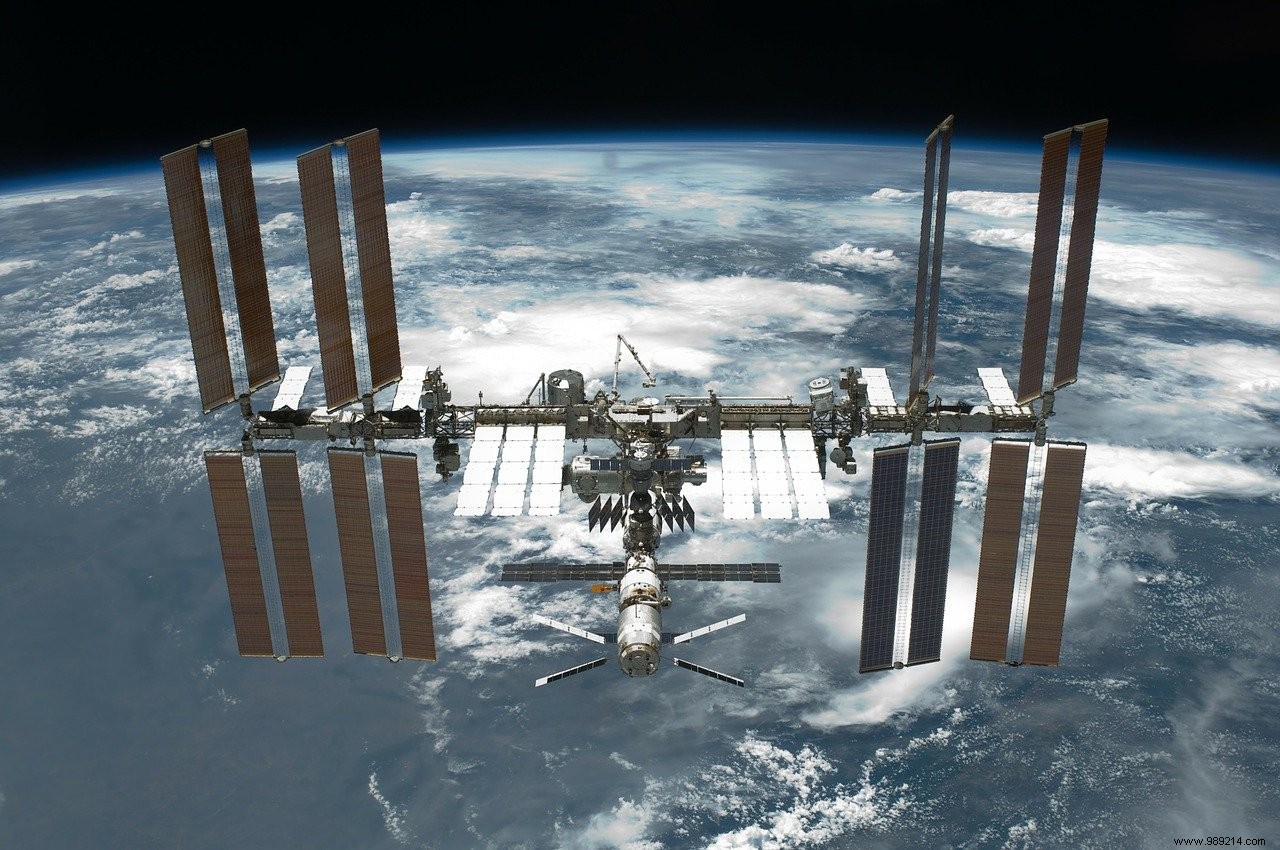According to state media, Russia may soon announce the end of its partnership with the United States and the rest of its International Space Station (ISS) partners. ). Two main reasons could explain this hasty departure.
On November 2, 2000, NASA astronaut Bill Shepherd and the two Russian cosmonauts, Yuri Gidzenko and Sergei Krikalev, docked with the ISS for the very first time. Since then, the station, born of a desire to ease geopolitical tensions in the aftermath of the Cold War, has been permanently occupied for more than twenty years. To date, nearly 250 people from 19 different countries have stayed there, and more than 3,000 scientific investigations have been carried out there, involving 108 countries.
That said, and just like the rest of us, the International Space Station is aging. Maintaining it in working order is also costly. Also, the ISS will soon be abandoned. Initially, the main operating nations had set the bar at 2024. Finally, the US Senate recently approved an extension until 2030. For its part, Russia seems to want to move on.
That's the rumor anyway. A few days ago, state media indeed quoted a senior government official as having apparently said that Russia would withdraw from the ISS by 2025. This departure, if confirmed, could be precipitated by the state of the station's Russian modules. In recent years, several air leaks have indeed been detected and then sealed.
“We need a technical inspection of the station to avoid any risk in the event of an emergency” , Borisov's office told the state-run TASS news agency. “We will make a decision based on the results and honestly inform our partners” , he added.
Meanwhile, Russian officials announced the start of work on a national space station that would succeed the country's Salyut and Mir stations, launched into low Earth orbit in the 1960s. 1970 and 1980.

This possible departure could also have a link with the recent announcement of a partnership between China and Russia aimed at building a research station on and/or around the Moon.
This latest agreement indeed suggests that the enduring relationship that NASA and Roscosmos (Russian space agency) have had for decades could soon reach a breaking point, with a "race to Space" now involving the United States and its partners on one side, and China and Russia on the other.
The International Space Station, ultimately, would be just the last piece of tape connecting the two nations in space. And obviously Russia, whose space program has lagged in recent years due to underfunding and corruption scandals, could be the one to "rip the bandage off" first, preferring to move closer to China, a new major player. of space exploration.